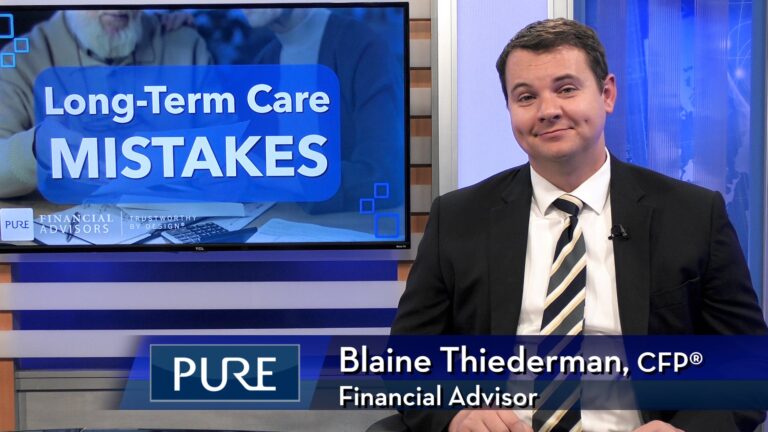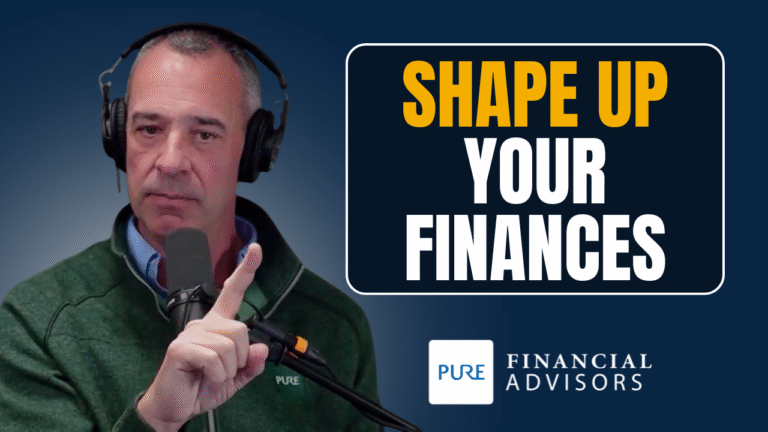Dominic Knauf, MBA, and Brian Perry, CFP®, CFA® share almost five decades of financial experience while they dissect the stock and bond markets, the outlook for inflation, and how to position your portfolio for success. Topics include:
• Whether higher inflation is here to stay
• How to ignore the hype and stay on track for financial success
• Managing your emotions as well as your money
Outline
Brian Perry talks about authoring three books on finance: Piggybank to Portfolio: A Financial Roadmap for New Investors, Retirement Revamp: Financial Planning in Times of Crisis, and his latest, Ignore the Hype: Financial Strategies Beyond the Media-Driven Mayhem.
From the market lows during the pandemic, how far up are the markets? Is the market behavior what you would’ve predicted in March of 2020?
What are your views on inflation, and what does inflation mean to investors, in real terms?
The impact of interest rates on inflation. Will we see interest rates increase?
The most common mistakes made by those who manage their own investments.
The equity markets and where they will be in the next couple of years.
Attendee Questions
Define “equity markets” please.
Do you recommend pulling back on your equities allocation in the next few years?
During times of uncertainty, are equal weight ETFs safer than non-weighted ETFs?
Do you see the devaluation of the dollar getting worse?
Are series I savings bonds a good investment to combat inflation?
How come you guys don’t talk about precious metals as investments?
Subscribe to our YouTube channel.
Read Brian Perry’s new book, Ignore the Hype: Financial Strategies Beyond the Media-Driven Mayhem
IMPORTANT DISCLOSURES:
• Investment Advisory and Financial Planning Services are offered through Pure Financial Advisors, LLC. A Registered Investment Advisor.
• Pure Financial Advisors, LLC does not offer tax or legal advice. Consult with a tax advisor or attorney regarding specific situations.
• Opinions expressed are subject to change without notice and are not intended as investment advice or to predict future performance.
• Investing involves risk including the potential loss of principal. No investment strategy can guarantee a profit or protect against loss in periods of declining values.
• All information is believed to be from reliable sources; however, we make no representation as to its completeness or accuracy.
• Intended for educational purposes only and are not intended as individualized advice or a guarantee that you will achieve a desired result. Before implementing any strategies discussed you should consult your tax and financial advisors.
CFP® – The CERTIFIED FINANCIAL PLANNER™ certification is by the Certified Financial Planner Board of Standards, Inc. To attain the right to use the CFP® designation, an individual must satisfactorily fulfill education, experience and ethics requirements as well as pass a comprehensive exam. Thirty hours of continuing education is required every two years to maintain the designation.
CFA® charter – Chartered Financial Analyst® designation contains three levels of curriculum which includes analysis using investment tools, valuation of assets, and synthesizing the concepts and analytical methods in a variety of applications for effective portfolio management and wealth planning. Candidates must meet enrollment requirements, self-attest to professional conduct, complete the approx. 900 hours of self-study, and successfully pass each level’s 6-hour exam to use the designation. CFA Institute does not endorse, promote, or warrant the accuracy or quality of Pure Financial Advisors. CFA® and Chartered Financial Analyst® are registered trademarks owned by CFA Institute.
MBA – The Master of Business Administration is a postgraduate degree that is awarded to students who have mastered the study of business. Most MBA programs include a “core” curriculum of subjects, such as accounting, economics, marketing, and operations, as well as elective courses that allow participants to follow their own personal or professional interests.












